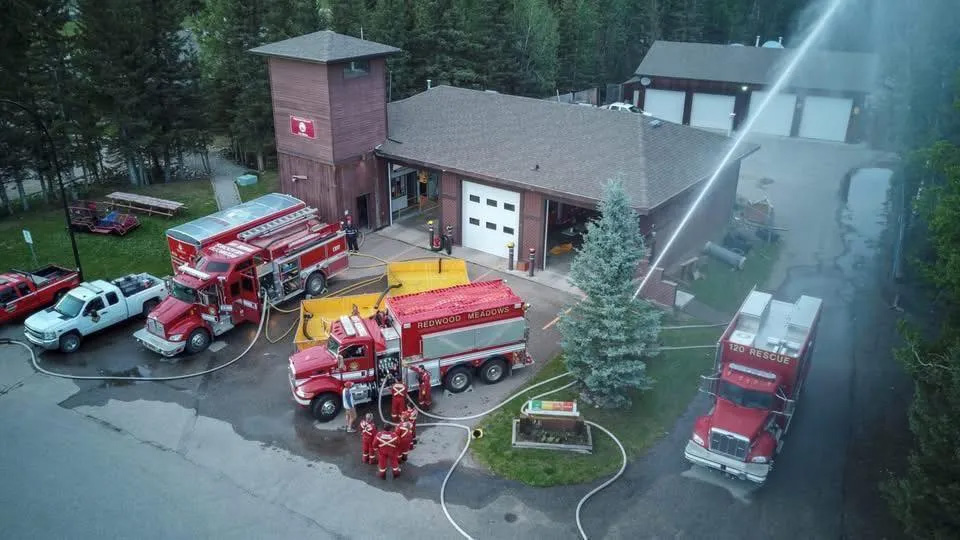
Warm spring weather has finally arrived in Chestermere, but the effects of the long winter and cold spring are still being felt in the city.
The most obvious one is that with the ice sheet still on Chestermere Lake, The Western Irrigation District (WID) hasn’t been able to bring the water level up for the summer.
“Historically if the lake gets too high with the ice sheet, once the ice sheet shrinks a little bit it is able to freely float around the lake,” said WID Water Master Brian Sander.
Once the ice sheet is floating and able to move around the lake, it can start to pose a danger to structures around the lake.
“As the sheet moves it obviously has a lot of force and weight so it just rides up lake bed and starts to knock the docks off,” said Sander.
“It tends to happen as soon as we get a north wind it’ll push all the ice towards the south end and then the docks on some of the east side and a bit further south, the ice starts to jam up against them,” he said.
It’s not just WID that fills Chestermere Lake in the spring, run off from the melting snow also makes its way to the lake and starts to slowly raise the water level.
Because of this danger, the WID drops the lake level significantly in the winter to leave room for the annual spring run-off.
“We’ve decided to really, really drop the fall level of the lake down so that hopefully we can avoid all these run off events in the spring which brings the lake up too high which gets the ice sheet flowing,” said Sander.
Unfortunately, this past year saw so much snow that the run-off is exceptionally more than average.
Because of this the WID has actually let water out of Chestermere Lake rather than start filling it.
Sander said that the ability to both let water into and out of the lake is also partly controlled by the ice.
If too much ice is built up around the gates WID is unable to operate them to control the flow of water.
Fortunately, Sander said that they were able to open the one gate, allowing them to control the water level as they wait for the ice sheet to melt and break up enough to be safe.
“We’re conscious of that and if able we will let water out,” he said, “we try and avoid, damage to people’s docks.”
Sander said that most years, the ice sheet is gone off the lake by mid-April and they tend to have the lake level up by May 1.
Another factor that affects the WID’s ability to bring up the lake levels is the ice conditions along the diversion canal and the diversion point on the Bow River.
Ice in the upstream portion of the system can do the same kind of damage to monitoring sites and flow meters on the canal as it does to docks on the lake.
“It’s a balance of when can we safely open the headworks without causing a significant dollar value damage to the canal system,” said Sander.
While most people in Chestermere think of the lake as a fun recreation spot, it’s primary job is as an irrigation reservoir.
Sander said that the same weather conditions that prevent them from filling the lake have also prevented farmers from getting their fields planted.
“So for operations from our side because its so cold and the spring is delayed farmers aren’t in the field so we won’t see a demand for water until sometime, at the earliest, into the middle of May,” he said.
Once conditions improve and WID is able to raise the lake level, farmers downstream will be seeding their fields.
“And then by the time that water demand comes we’ve already got our systems primed and full of water and away we go,” said Sander.
Although their main focus is on irrigation, Sander said that he and his staff work very hard monitoring the lake to keep it at an optimal recreation level through the summer.








